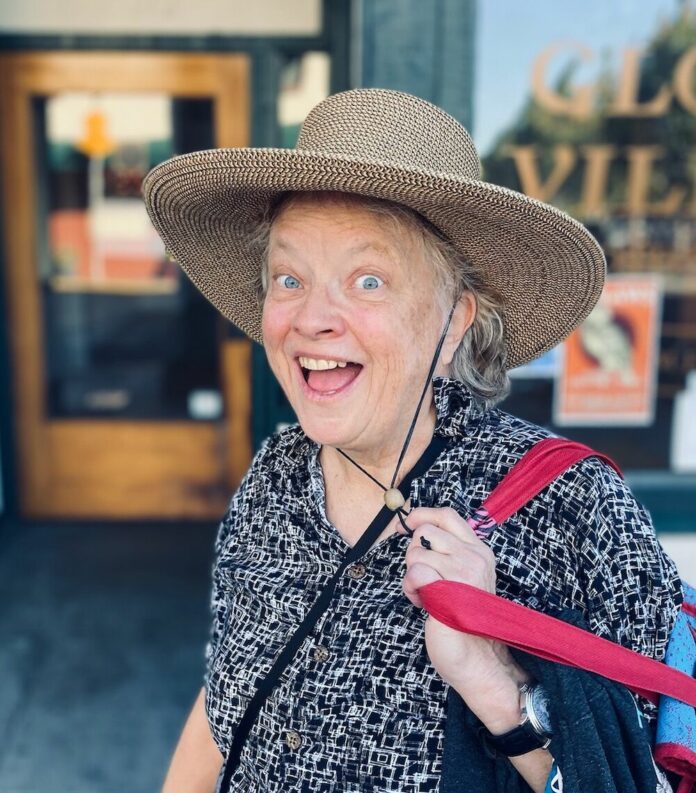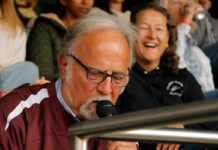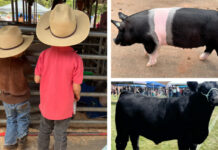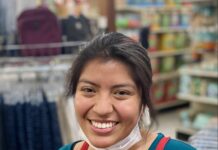I’ve been running into Marilyn Read for years. We first met at Memorial Hospice where we both worked as nurses. Then I’d see Marilyn every summer up at the Kate Wolf festival where she would be hanging out with her banjo and her Love Choir community. Later, as a ukulele instructor at the Sebastopol Cultural Center, she got my wife hooked on the thing.
Last Wednesday, walking over to the latest rendition of the Peacetown music gathering in the Barlow, I ran into Marilyn again.
She is certainly a treasured Face of the West County, and I was happy that she agreed to sit with me and spill the beans.
Where and when were you born, Marilyn?
It was San Francisco. Let’s say in the early ‘50s. (She laughs.)
I grew up there until I was 18. Went to Lincoln High. We lived out in the Sunset.
Willie Mays lived in Forest Hills, not so far from us. We’d go to his house on Halloween because he was said to give out generous amounts of Bazooka Bubble Gum.
Where was your family from?
Dad, Wyoming. Mom, Montana. There was a Dutch grandmother, and grandparents from Atlanta on my dad’s side.
I had a great grandfather who was said to be a sheriff up in Mendocino County. He travelled all over the west on mule trains as a doctor … I’m not proud at what he must have done to the native population of Mendocino County as sheriff. At one point he was involved in a violent battle with some native people. I believe he ended up adopting an Indian boy who was orphaned in the encounter.
You left California at age 18. Where to?
I was eager to join the Back to the Land movement and first headed to Colorado, and then New Mexico, and eventually Tennessee.
I know you lived for quite a while on The Farm (Stephan Gaskin’s famous commune/spiritual community). Can you tell us something about that?
Well, I was there for 12 years. My four sons were all born there. We left in the 80’s when The Farm had some major financial problems. We also didn’t want to follow a particular spiritual teacher. There was disillusion with Stephan’s leadership. Let’s leave it at that. Some stayed, and the place is still a functioning community today, though much different from the community of the 70’s. It went from about 1500 to about 250 … I still love the place and have some deep friendships there. I go back often.
One of the things I’m most proud of, is how The Farm spawned a nonprofit called Plenty. It focuses on helping underserved communities throughout the world, often after a flood, or earthquake or some sort of natural disaster. I was part of a project in La Paz, Mexico, after a dam broke and killed more than a thousand people. We were down there for almost three months. I came back to Tennessee to give birth to our third child. We named him Carlos as he had spent some time down in Mexico.
There was a big emphasis on “right livelihood” on The Farm. Lots of medical people were drawn to the place, or people who went into the medical field, as we had various projects that focused on helping others … I became a nurse myself, but years after leaving. I was at a number of births on The Farm, and thought I’d be a midwife. I ended up doing hospice work, which is a different sort of midwifery … I’m semi-retired now, but recently went up to Lake County to help with giving COVID shots out.
Do you get why there is so much reluctance to getting the vaccine?
Probably due to the divisive propaganda that’s caused so many to be fearful. I respect people’s rights to not vaccinate, but it’s unfortunate that there’s so much misinformation out there.
I think it’s at the cost of people’s lives. The huge majority of COVID ICU cases, are among the unvaccinated.
Yeah, but there’s lots of things about our society that costs lives, like for-profit healthcare. And our economic system is based on using up the natural resources of the world, and so many are suffering as a result.
It’s more than if you get a COVID shot or not.
…But it reflects the political forces at work in our country. It’s unfortunate that the pandemic was politicized when we should have been cooperating to save as many lives as possible. But I’ve gotta say, I was really impressed with the Lake County public health effort to get shots into people’s arms. It was a smoothly run project.
Your attraction to living in community didn’t end with The Farm, did it?
Yes, that’s right. I now live in a co-housing community here in Sebastopol. It’s called Sequoia Village, and was a sweat equity project. I really enjoy living here, but my main focus today is music, and teaching ukulele.
When did you discover the uke?
Ahhhh yes. It started with the banjo. I took that up in nursing school as a creative outlet. After playing for five years, I joined the Love Choir where I met many music loving people. One of them was a uke player who made sure I had a uke when I went to Hawaii once. Well, I taught myself some chords on the plane, and then in Hawaii, that’s where I got the bug … My goal is to flood the world with ukulele players.
How’s that working?
Well, it’s not quite a tsunami, but it’s a way for me to pass my love of music onto others.
Okay Marilyn. If you had a spare $20, who would you give it to?
(She took a nano second to answer.) Sonoma County Acts of Kindness. They provide meals and support to people without shelter.
Another effort that I really like is The Kids to the Country program back on The Farm. Inner city kids from Nashville are brought out to the country and all the nature there. I’ve taken my grandkids back to The Farm and taught the kids in the program ukulele. It’s another program of Plenty’s, and worth supporting.
You’re another west county blessing Marilyn. Thanks for your good work.
Sonoma County Acts of Kindness can be found at: socoactsofkindness.org
More about Plenty and their Kids to the Country program can be found at: in**@pl****.org
42.4
F
Healdsburg
April 12, 2025








